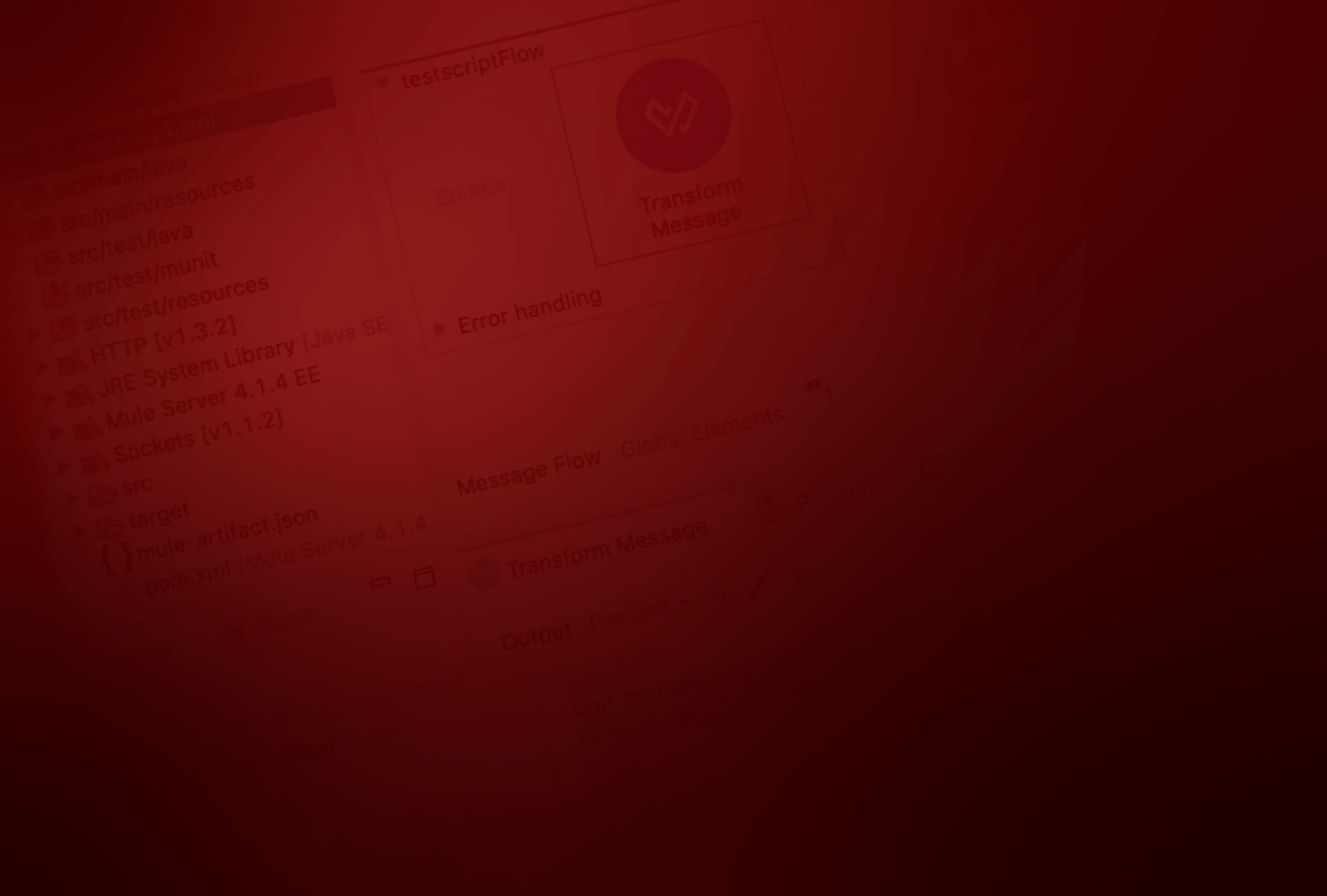- Services
- Solutions
- Technologies
- Resources
- About
-
- +44 (0)203 743 8014
×

)
)
This course is for Anypoint Platform administrators, including operations personnel, developers, and architects who want to get hands-on experience installing, configuring, and using Runtime Fabric on a managed Kubernetes solution provided by AWS, Azure, or Google Cloud.
Install, operate, and maintain Runtime Fabric on an existing Kubernetes environment on Amazon EKS, AKS, or GKE. Anypoint Runtime Fabric™ is a container service that automates and orchestrates the deployment of Mule runtimes across any environment with centralized management through a single MuleSoft-hosted control plane.
It is distributed as a package that is installable on an existing Kubernetes environment on Amazon Elastic Kubernetes Service (Amazon EKS), Azure Kubernetes Service (AKS), or Google Kubernetes Engine (GKE). You operate and manage the Kubernetes environment. In the hands-on exercises, this course uses a Kubernetes cluster on Amazon EKS, but the steps are the same with minor command changes for a Kubernetes cluster on AKS or GKE.
2 days in-person
2 days online
Intermediate
At the end of this course, students should be able to:
Basic knowledge and experience with the components of Anypoint Platform from one of the following:
Prior system knowledge and experience:
You'll learn from some of the best trainers in the industry. The training will be tailored to your needs and budget. We can arrange training for your employees (groups for up to 12 people) whenever it suits you. We'll even adapt the standard courses according to your requirement.
Not the course you were looking for? We have a range of courses to suit everyone.
Want to develop your team of operations personnel, architects and developers? Book an enquiry and give your team hands-on experience with Runtime Fabric.
We are passionate and share the joy of igniting ideas to fuel business visions. We are confident and are not afraid to boldly go where we’ve never been. We are also very friendly and approachable people who love to solve problems. Give our curious intelligent learners a challenge and we will make it work.
[fa icon="phone"]+44 (0)203 743 8014
[fa icon="phone"]+44 (0)203 875 5669 (Support)
[fa icon="envelope"]info@infomentum.co.uk
[fa icon="map-marker"]4th Floor
68 King William Street
London, EC4N 7HR, UK